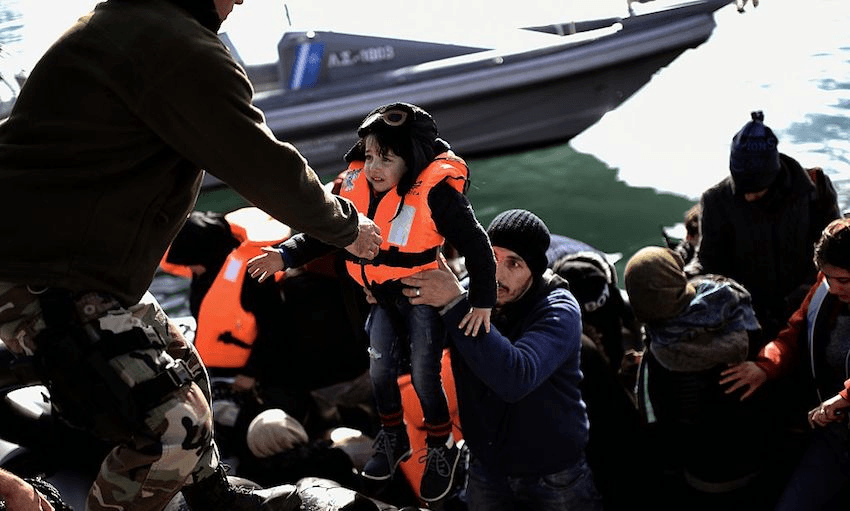Shaymaa Arif from Hamilton has spent part of this year volunteering as an Arabic interpreter at a medical clinic in Moria Camp, one of the camps in the Greek Islands where refugees are struggling to survive. She says New Zealand must not turn its back on the crisis.
It is so easy for us in New Zealand to isolate ourselves, to put a virtual dome around us that separates us from the problems happening everywhere else in the world. To be honest, even within New Zealand, we sometimes hold the us vs them mentality.
But the refugee crisis is still ongoing. Even if we want to separate our emotions from it all, facts remain facts.
Boats are continuously arriving every day onto Greek Islands, and there are still numerous deaths at sea when safe passage should be a human right.
When our government begins delaying plans to increase the refugee quota, it has a massive impact. Those are an additional 750 people. Seven hundred and fifty people who are struggling day by day in a country that they cannot settle into and call home. Refugee children are usually deprived of education and forced to enter into exploitative labour in order to contribute some form of income to the family. Even men and women who are working often have their salaries withheld because there are rarely any laws surrounding refugee working rights.
The conversation in New Zealand about the refugee crisis has tended to pit two vulnerable groups against each other, or two crucial issues against each other: that we can’t pay for refugees, because there is something else that needs more urgent attention.
Recently, the narrative has been that because of our housing crisis in the northern cities of New Zealand, we simply cannot focus on increasing the refugee quota. Both Labour and the Greens, now in government, campaigned on increasing the refugee quota. Finding strategies and solutions to do this should have been a priority when election campaigning was still occurring, not after the government has already come into power.
There are more than 1.4 million people displaced across the world. In Camp Moria on Lesvos, where I volunteered, there are already 8,000 residents. There is capacity for only 3,000. Living conditions are inadequate and refugees have to wait for months, if not years, until their papers are processed.
Yes, New Zealand is a small country, but we have to do our bit in emergency response situations. We might ask why taking 750 more people is causing such controversy here, in the context of millions displaced. Let us not forget that behind every number is a name, a future, that we can choose to either acknowledge or ignore.
We are signatories to the United Nations Refugee Convention. We have obligations. So I urge the New Zealand government: let’s continue doing our bit.
The Bulletin is The Spinoff’s acclaimed, free daily curated digest of all the most important stories from around New Zealand delivered directly to your inbox each morning.
